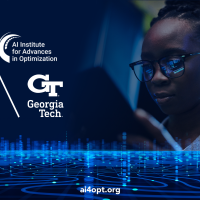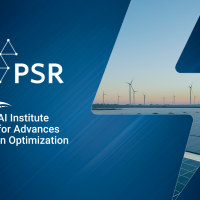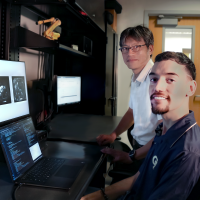6 min read
Clark Atlanta University, with AI4OPT at Georgia Tech, received a $2.79 million NSF grant to advance AI education and research at HBCUs, led by Charles B. Pierre.
3 min read
AI4OPT and PSR partner to transform the energy sector, focusing on renewable energy integration and long-duration storage solutions.
3 min read
Like the track laid down at Georgia Tech before the 1996 Olympic Games, the Mondo track in Paris was engineered to produce fast times.
3 min read
IMAT’s Research Experience for Undergraduates gives students hands-on opportunities.
3 min read
Georgia Tech will lead a consortium of 12 universities and 12 national labs as part of a $25 million U.S. Department of Energy’s National Nuclear Security Administration (NNSA) award.
4 min read
This science of human decision-making is only just being applied to machine learning, but developing a neural network even closer to the actual human brain may make it more reliable, according to the researchers.
3 min read
With increasing work demands and workforce shortages, providing an accurate, automated way to classify image quality will create a streamlined approach and reduce the need for repeat scans.
1 min read
Time is winding down on Olympic organizers’ plans to stage open-water swimming events in Paris’ iconic Seine River later this month.
3 min read
The consortium of historically Black educational institutions and other stakeholders convened to establish the organization’s strategic direction and governance model. The goal is to foster a diverse workforce and drive innovation in the U.S. semiconducto
3 min read
New research from Georgia Tech is giving scientists more control options over generative artificial intelligence (AI) models in their studies.














